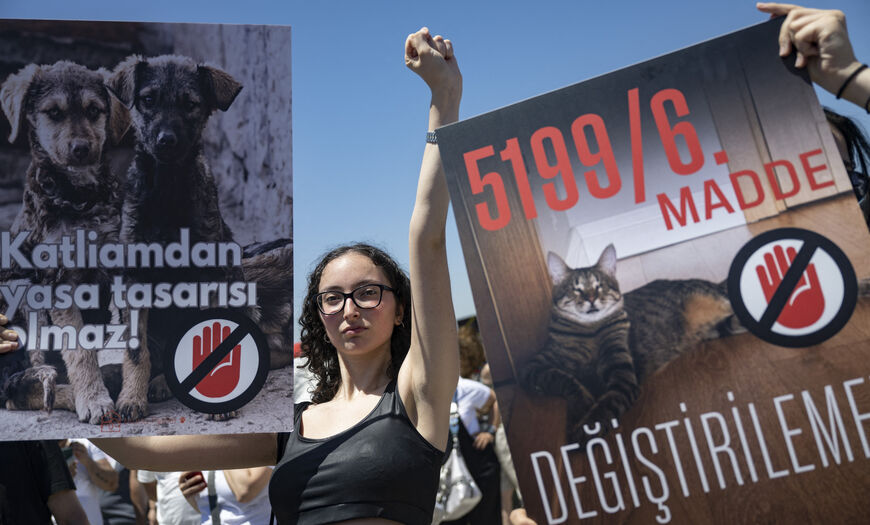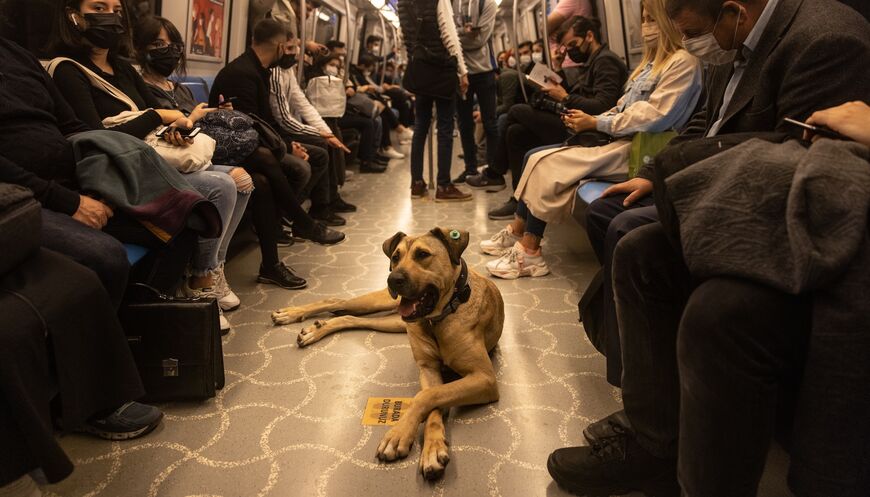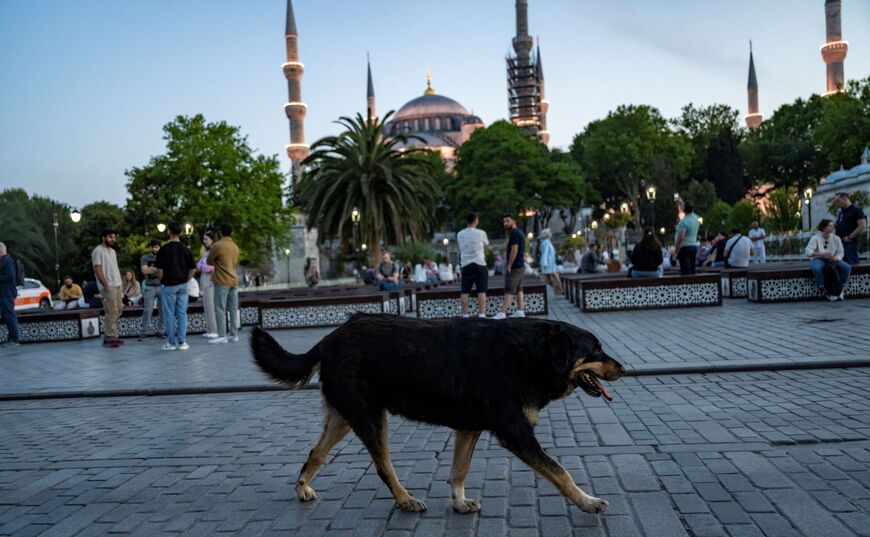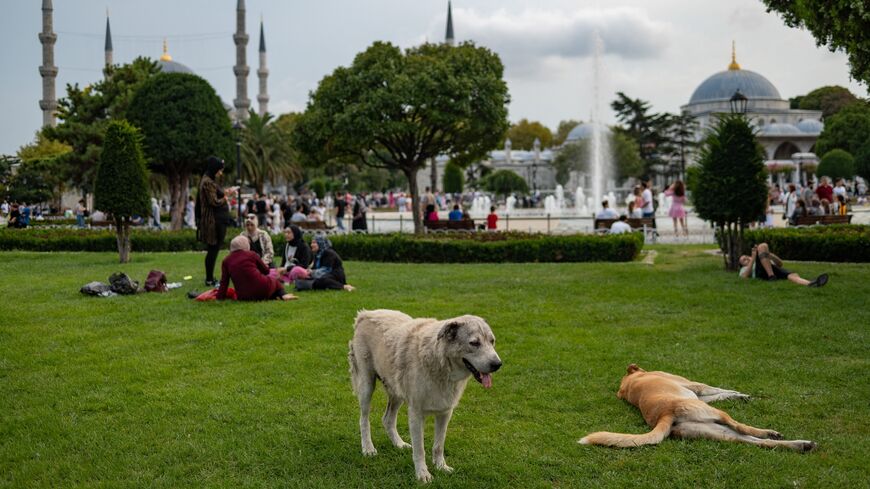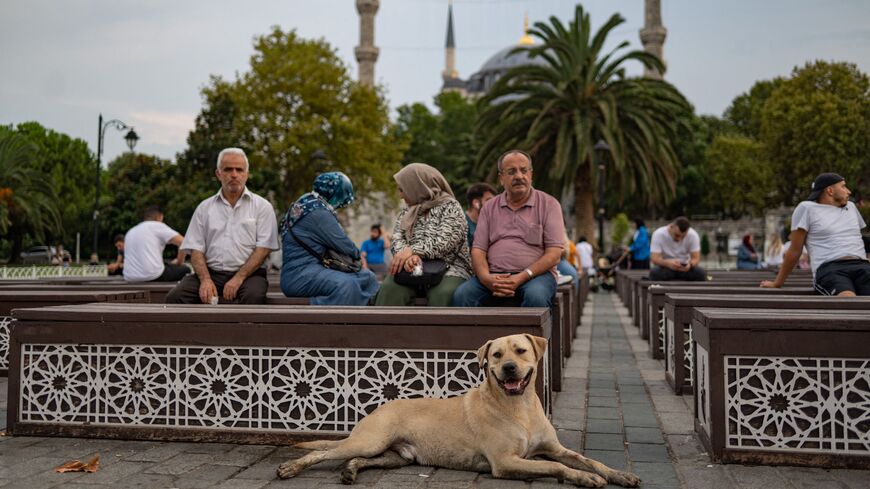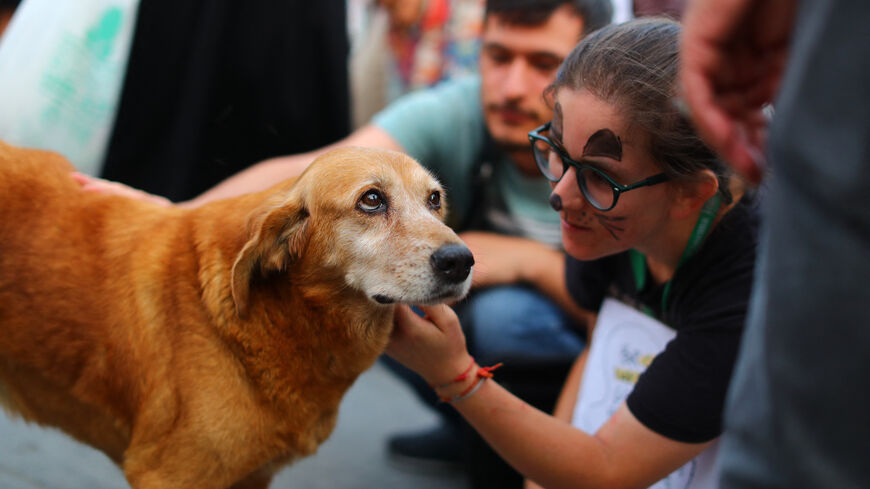Turkey's street dogs face mass cullings as Erdogan touts euthanization bill
The bill has caused uproar among animal lovers, triggering noisy demonstrations.

A common trope in Western lore is that Muslims view dogs as dirty and undesirable and, by extension, are prone to cruelty toward them. It may hence come as something of a surprise that Fatih Erbakan, the leader of the overtly Islamist New Welfare Party, is — alongside Turkey’s pro-secular main opposition Republican People’s Party — one of the loudest critics of a controversial bill to potentially cull millions of stray dogs. Erbakan said the bill drafted by the ruling Justice and Development Party (AKP) “violates the spirit of the Prophet Mohammed’s teachings.”
“The life granted by the Almighty Allah can only be taken by the Almighty Allah. Be it a human or an animal, it is so,” Erbakan said after the bill was unveiled.
Just days later, fellow Islamist President Recep Tayyip Erdogan defended the bill. “A large portion of society wants this problem to be solved as swiftly as possible. They want our streets to be safe for everyone — foremost for our children,” Erdogan told the parliament on May 29.
The bill says that municipalities run by elected officials would run shelters where the animals would be gathered and held for 30 days pending adoption and then euthanized if adoption failed. Erdogan and his nationalist allies command a majority in the parliament. The bill is therefore likely to become law.
The bill has caused uproar among animal lovers, triggering noisy demonstrations and a flurry of punditry recalling the misfortunes that befell the Ottoman Empire when, in 1910, thousands of stray dogs were packed off to an islet off the coast of Istanbul and left to die of starvation and thirst. The empire collapsed soon after. Might a similar fate befall Erdogan? The screeds inquired.
The current practice of capturing, sterilizing, microchipping and releasing an estimated 4 million strays is not a panacea, Erdogan insisted, noting that in the past five years, 3,543 traffic accidents have occurred as a result of vehicles colliding or trying not to collide with wandering street dogs. Some 55 people had perished and 5,147 others were injured in canine-linked incidents during that period, Erdogan added. Rabies poses an additional challenge.
Others who back the bill claim that a so-called “pet food lobby” wants it scrapped, as this will deny them substantial income derived from donations for stray dogs.
Ideally, Erdogan said, there would be no need to put any dogs to sleep as they would surely find homes. Proponents of the plan argue that similar practices exist in “civilized” Europe and the United States. Animal rights campaigners beg to differ, noting that the size of the ownerless canine population is such that any comparison with the West is nonsensical, and that once the bill becomes law, the vast majority of strays will have to be put down, as only a fraction would find homes amid runaway inflation and expanding poverty.
Turkey’s stray dog problem is the result of decades of mismanagement, neglect and some corrupt private charities that operate for profit, activists say.
Banu Aydin, an Istanbul-based economist, is among Turkey’s best-known animal rights activists who has personally rescued and treated countless dogs, including many disabled by the massive earthquake that ripped across southern Turkey in February last year. “Where would you begin? Do you know how many pit bulls there are in Istanbul alone?” she asked. “At least 50,000,” Aydin told Al-Monitor.
Breeding and owning pit bulls and other breeds deemed dangerous was criminalized in an animal rights law that was adopted in 2021. A fatal attack by a pack of dogs on a 6-year-old girl in the eastern province of Van along with numerous reports of children being savaged by pit bulls prompted the move amid a public outcry. The law was deemed progressive as it also criminalized sexual abuse of and ill-treatment of animals with sentences of up to three years and mandated municipalities to allocate a decidedly microscopic share of their revenues to building and running shelters. But the problems only grew, and the worst abuses against animals occur in municipality-run shelters, Aydin noted. In 2022, an animal shelter employee in the central Anatolian province of Konya was captured on video beating a stray dog to death with a shovel. The video went viral, and the man and his coworker were arrested.
A fatal regression
Ironically, it was the AKP that introduced Turkey’s first comprehensive animal rights bill in 2004 in line with European Union norms, when Erdogan was his earlier reformist self. That bill banned the killing of stray dogs except under conditions laid out in the Animal Health and Inspection Act.
As Al-Monitor contributor Nazlan Ertan noted in her “Turkey Unplucked” column for the ANKA newsletter, this was “a major turning point.” As things currently stand, euthanasia is permitted on a case-by-case basis — for example, when an animal is diagnosed with rabies or is displaying aggressive, life-threatening behavior.
Cruelty to animals is not uncommon in Turkey, much as it isn’t in other countries across the globe. Ertan recalled that the extermination of stray dogs with gas in London began in 1884. However, Turks across the ideological divide take deep pride in the fact that, unlike in Britain or the United States, stray animals are not put down. Each neighborhood has its favorite stray dogs who are fed scraps by the local butcher and other residents who give them names. Some, like Boji, the itinerant Anatolian shepherd mix, have made international headlines.
A 2023 survey by the Ankara-based polling outfit Metropoll found that only 2.7% of respondents favored euthanization. “Turkish society is opposed to putting down strays and knows that those who end up in government-run shelters either die of starvation or ill treatment,” Metropoll founder Ozer Sencar told Al-Monitor. “They also blame the government for failing to solve the problem because this government has been in power for 22 years and, until 2019, controlled the largest municipalities in the country,” Sencar added. An average of 260,000 dogs are thought to be neutered annually, with minimal impact on the ever-growing population of strays.
The alarm bells began sounding in late 2021 when Erdogan ordered all municipalities to round up stray dogs, neutered or not, and place them in shelters, while calling on “White Turks” to keep their pets under control. White Turks is a term coined by Islamists to disparage secular urbanites who, in their eyes, ape decadent Western lifestyles, look down on rural Anatolians and deny their Muslim heritage. The directive was quietly shelved amid public anger. Then in December, Erdogan spoke of the need to act after a 10-year-old child was badly mauled by stray dogs in Ankara and had to be hospitalized for three months.
Yet it’s difficult to imagine how and when the government could possibly implement the bill if it becomes law.
The Turkish Veterinarians Union has already declared that its members will not obey the law. “As veterinary doctors, we will not perform euthanizations even if the [bill] is passed” because killing healthy animals “is neither ethical, humane or conscientious,” the union asserted in a statement in which it laid out its own recommendations for shrinking the street animal population.
Indeed, there are reports that the government may be scaling back its plans. According to the daily Milliyet, AKP lawmakers who recently met with Erdogan want to tweak the draft bill to prioritize the euthanizing of rabid and aggressive dogs that cannot be “rehabilitated” and aren’t adopted within a month of their internment. Those deemed “harmless” will be neutered and allowed to continue their lives.
In a further hopeful sign, the bill has yet to be put on the parliament’s agenda. Like most animal lovers, Aydin says it ought to be scrapped altogether. “If need be, I will go and beg the president personally to stop this cruel act.”



